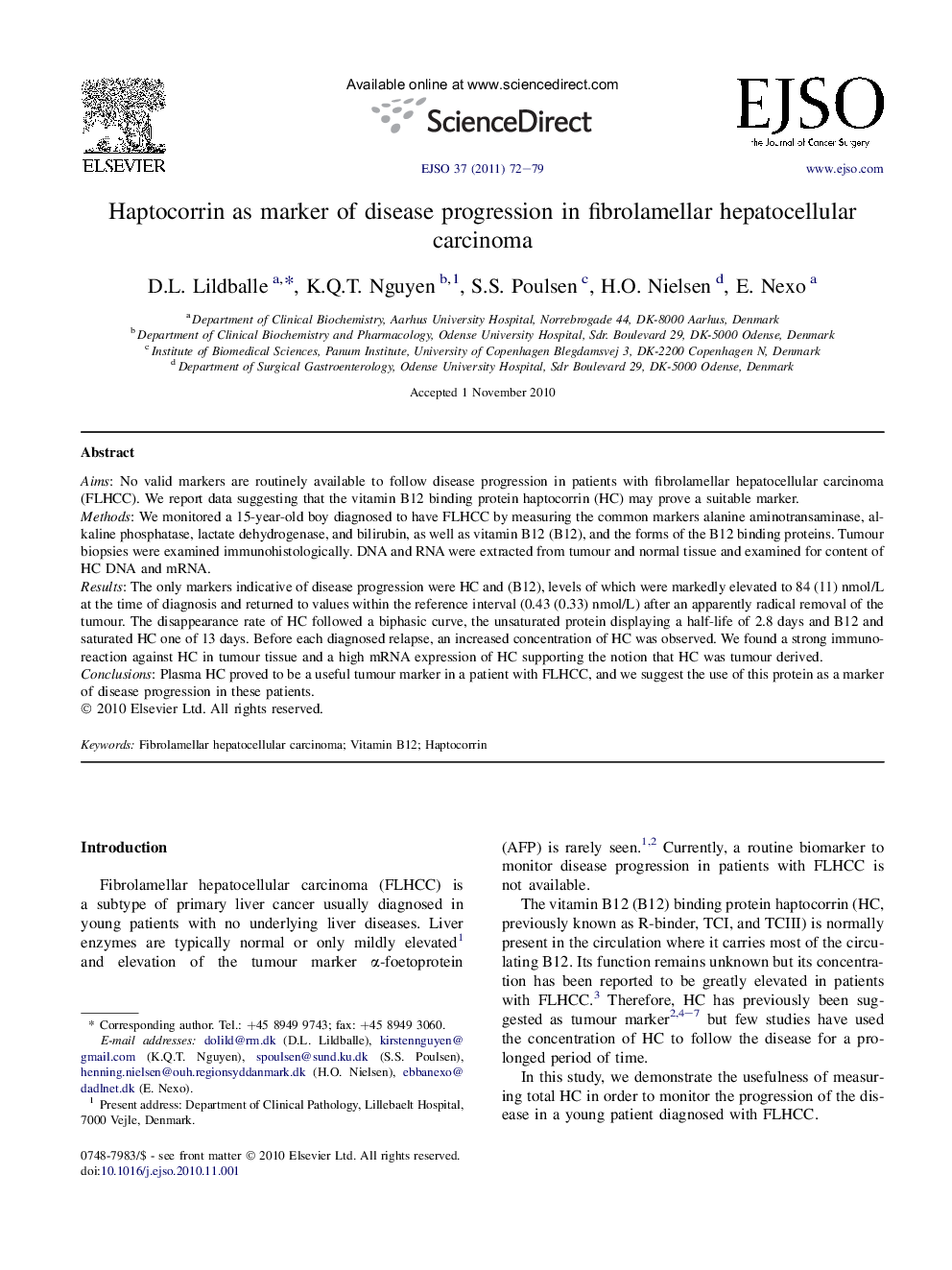| Article ID | Journal | Published Year | Pages | File Type |
|---|---|---|---|---|
| 6191913 | European Journal of Surgical Oncology (EJSO) | 2011 | 8 Pages |
AimsNo valid markers are routinely available to follow disease progression in patients with fibrolamellar hepatocellular carcinoma (FLHCC). We report data suggesting that the vitamin B12 binding protein haptocorrin (HC) may prove a suitable marker.MethodsWe monitored a 15-year-old boy diagnosed to have FLHCC by measuring the common markers alanine aminotransaminase, alkaline phosphatase, lactate dehydrogenase, and bilirubin, as well as vitamin B12 (B12), and the forms of the B12 binding proteins. Tumour biopsies were examined immunohistologically. DNA and RNA were extracted from tumour and normal tissue and examined for content of HC DNA and mRNA.ResultsThe only markers indicative of disease progression were HC and (B12), levels of which were markedly elevated to 84 (11)Â nmol/L at the time of diagnosis and returned to values within the reference interval (0.43 (0.33)Â nmol/L) after an apparently radical removal of the tumour. The disappearance rate of HC followed a biphasic curve, the unsaturated protein displaying a half-life of 2.8 days and B12 and saturated HC one of 13 days. Before each diagnosed relapse, an increased concentration of HC was observed. We found a strong immunoreaction against HC in tumour tissue and a high mRNA expression of HC supporting the notion that HC was tumour derived.ConclusionsPlasma HC proved to be a useful tumour marker in a patient with FLHCC, and we suggest the use of this protein as a marker of disease progression in these patients.
